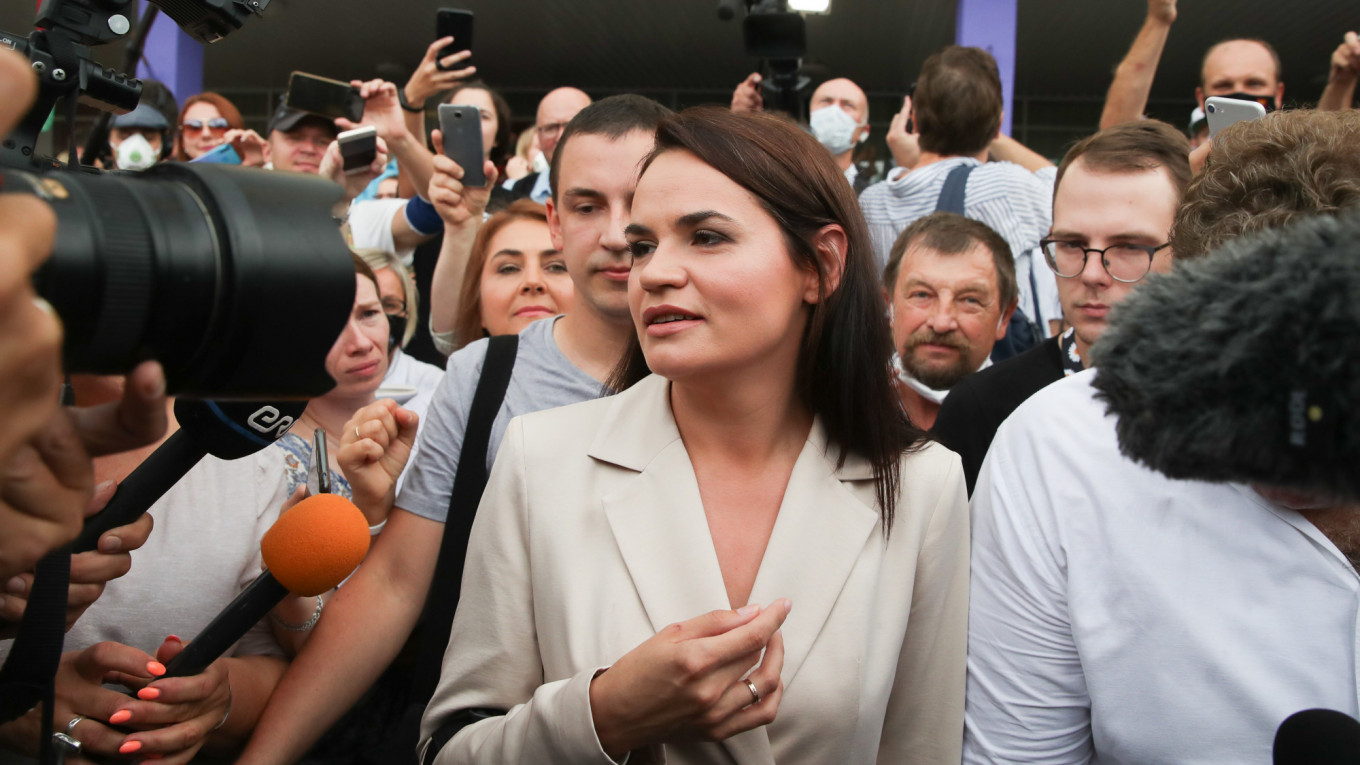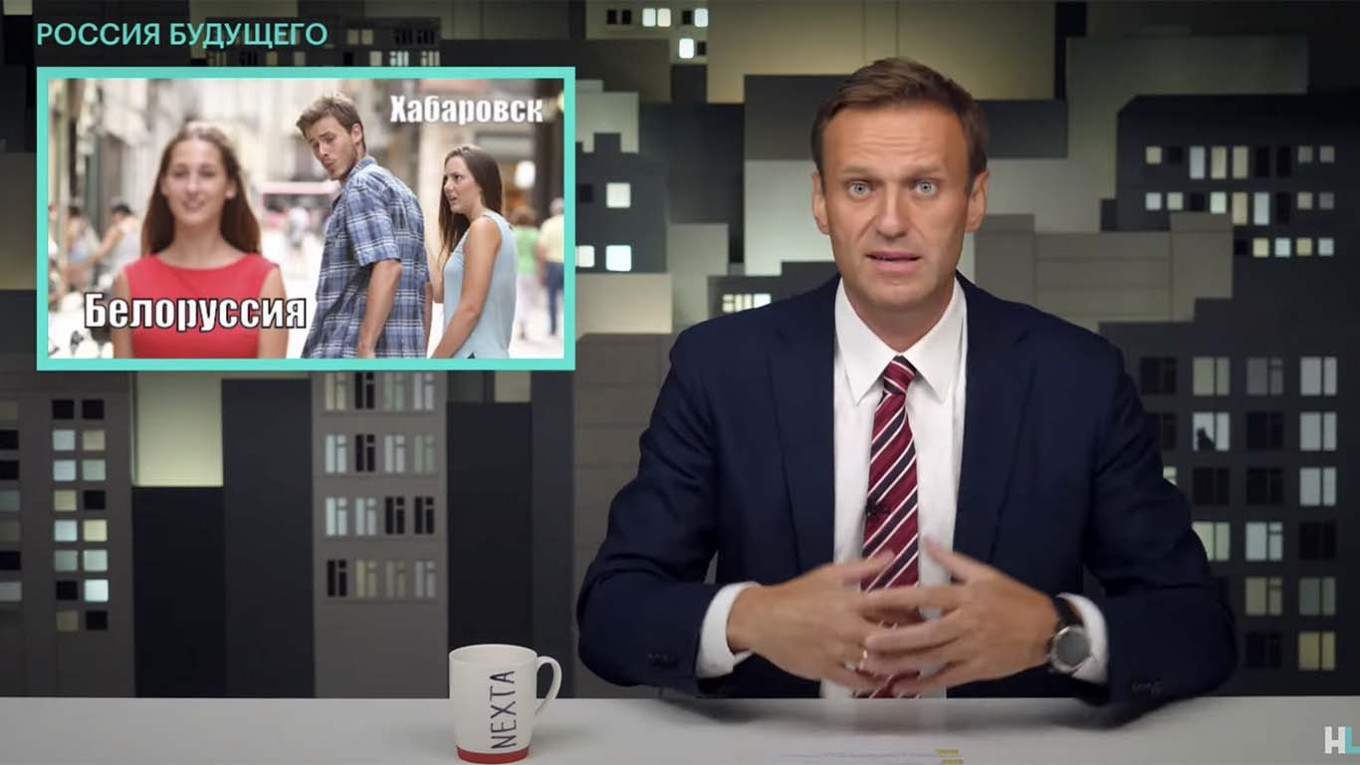RA’s Daily Russia News Blast – August 19, 2020

Today in Russia: Belarus opposition “Coordination Council” meets for first time; Tikhanovskaya urges EU not to recognize election results; Putin warns Merkel, other EU leaders not to interfere in Belarus; Trump says he will talk to Putin about Belarus; Gorbachev identifies Lukashenko’s mistakes in interview; Russia’s opposition eyes events next door in Minsk; Khabarovsk Transport Minister from Furgal administration detained; US Senate GOP-led report says Russia interfered in 2016 elections; Russian general killed in Syria; Russian offshore may be more appealing than Cyprus after tax agreement renegotiation
Protests continue in Belarus, as tens of thousands continue to march in the streets. The opposition held the first meeting of its Coordination Council. “Belarus’ Coordination Council met for the first time on August 18, a group of civil rights activists, opposition politicians, prominent businessmen, journalists and intellectuals that hope to ease Belarus’ self-appointed President Alexander Lukashenko out of power and pave the way to a freer and more democratic country. It is the beginning of the longer, more difficult stage in the revolution, where the focus switches from the street to the negotiations with a rapidly expanding cast of actors.” Alexander Lukashenko accused the opposition of “staging a coup” by forming the Coordination Council.
Svetlana Tikhanovskaya, the now-exiled presidential candidate who many believe would have won a free and fair election against Alexander Lukashenko called on EU leaders not to recognize the election result in a video address to the European Council. “I call on you not to recognize these fraudulent elections…Lukashenko has lost all legitimacy in the eyes of our nation and the world.”
Russian President Vladimir Putin warned German Chancellor Angela Merkel and other EU leaders not to “interfere” in Belarus. In a call with Merkel and French President Emmanuel Macron, according to a Kremlin readout, “the Russian side emphasized the unacceptability of any attempts to interfere from the outside in the internal affairs of the republic, leading to a further escalation of the crisis.”
US President Donald Trump weighed in on events in Belarus by noting that protests seemed peaceful and that he likes “seeing democracy.” The US President added “Democracy is a very important word. It doesn’t seem like it’s too much democracy there in Belarus.” Trump further stated that he would speak with Russia “at the appropriate time” regarding events in Belarus.
Former leader of the USSR Mikhail Gorbachev spoke with Komsomolskaya Pravda [in Russian] about events in Belarus. He was asked if there were parallels in Belarus today with what happened before the collapse of the USSR. Gorbachev responded that he has not yet reached such a conclusion, but noted that Lukashenko waited too long to get “industrial workers” on his side, remarking “Lukashenko turned to industrial workers for support. But it seems too late. So, everything needs to be disassembled yet.” Gorbachev also observed [in Russian] that in 1991 he also appealed to workers, “But we didn’t get the support we needed. And I am not inclined to blame the workers.”
Russia’s opposition is eyeing events in Belarus. Opposition figure and anti-corruption fighter Alexei Navalny spoke of Belarus capturing all the attention, distracting Russians from ongoing mass-protests in the far-eastern city of Khabarovsk after the region’s governor was removed and jailed:
During his weekly YouTube talk show Thursday, Kremlin critic Alexei Navalny summed up how Russia’s opposition feels about the protests that are raging on either end of the post-Soviet space with one of the internet’s most popular memes: the distracted boyfriend.
In the version of the meme the de facto Russian opposition leader shared, the boyfriend, who while walking hand-in-hand with his girlfriend turns to check out another woman passing in the other direction, is the opposition. The girlfriend is Khabarovsk, a city near the border with China, where massive anti-Kremlin protests have now continued for more than six weeks.
And the other woman is Belarus, where an unprecedented uprising against Alexander Lukashenko, who has ruled the country since 1994, has swung Russia’s attention all the way from the east to its western border.
“It’s a little uncomfortable for any Russian politician,” Navalny said. “Just recently any opposition politician or Russian media was saying Khabarovsk, Khabarovsk, Khabarovsk, Khabarovsk, you are the most important political development. Which is still true, but everyone’s forgotten about it and is now only talking about Belarus.”

The Khabarovsk Transport Minister Maxim Prokhorov was detained and accused of accepting bribes. Prokhorov worked under the jailed and removed former governor, Sergei Furgal, who is now facing trial for alleged contract killings over a decade ago. Furgal’s removal has sparked the largest protests in Russia’s far east in decades. RBC wrote [in Russian] that “The interim governor of the Khabarovsk Territory, Mikhail Degtyarev, announced on August 12 that he would most likely fire Prokhorov for sabotage. He said that the minister tried to deceit to postpone the repair of the road in one of the districts of the region until next year.” Kommersant wrote [in Russian] that an investigative committee is currently looking into the circumstances leading to the deaths of Russian servicemembers in the blast.
A nearly 1,000-page US Senate report from a Republican-led committee has provided new revelations of ties between the Donald Trump 2016 presidential campaign and Russia, laying out “an extensive web of contacts between Trump campaign advisers and Kremlin officials and other Russians, including at least one intelligence officer and others tied to the country’s spy services.”
“A Russian major general was killed and two servicemen wounded when an improvised explosive device went off near a Russian convoy in eastern Syria on Tuesday, news agencies quoted the defense ministry as saying. The ministry said the device went off while the convoy was returning from a humanitarian operation near the city of Deir Ezzor.“
Russian domestic offshores may be a better tax deal than Cyprus or other traditionally popular overseas offshore destinations for Russian cash as a result of the new double tax agreements Russia succeeded in renegotiating. Vedomosti wrote [in Russian], “Having achieved an increase in taxes on transfers of money to international quasi-offshore zones (Cyprus, Malta, Luxembourg), the government intends to drastically soften the tax regime for residents of Russian “internal offshore” – special administrative regions (SAR). The Ministry of Finance has prepared amendments to the Tax Code, according to which international holding companies registered in the SAR will be exempt from income tax transferred by their foreign divisions, and the tax on dividends on shares (stakes) of international holding companies will be reduced to 5%.“
PHOTO: Svetlana Tikhanovskaya has urged EU countries to reject the questionable presidential election results in Belarus that saw incumbent Alexander Lukashenko win an improbably 80 percent of the vote (Natalia Fedosenko / TASS).











